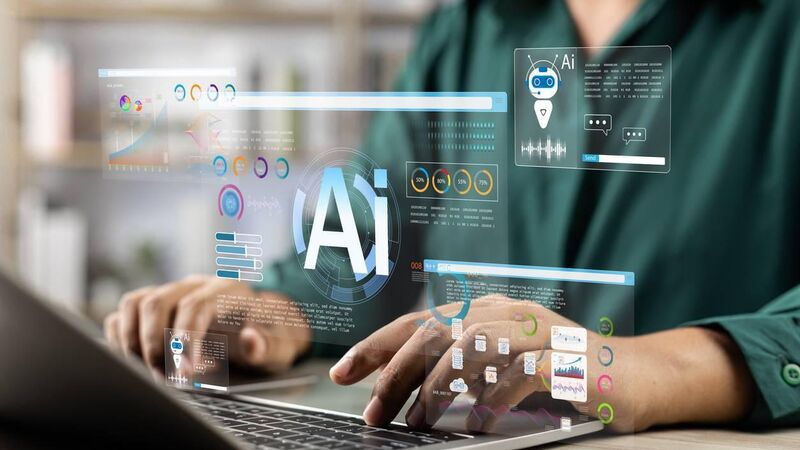Harnessing AI is critically dependent on skills development

AI and Generative AI will be invaluable in accounting, where it can be used to help lower barriers to predictive and cognitive analytics.
Despite its conservative image, the professional services sector has long been among the earliest adopters of new technology. Indeed, professional services firms have been using AI for many years and are in the vanguard of GenAI adoption, but this is presenting new skills challenges.
“As a global accountancy organisation, we are increasingly aware of the use of AI and Generative AI in practice,” says Stephen Noonan, head of ACCA Ireland. “We have seen how AI can help lower existing barriers to the introduction of predictive and cognitive analytics to support various finance activities and enhance skillsets, implement new solutions, and the challenges that must first be confronted to ensure safe and ethical use.”

GenAI is already offering support across a range of tasks including automating report generation, enhancing risk assessment using natural language processing (NLP), generating summaries, and interacting with varying data types and facilitating scenario modelling and predictive analytics, he adds.
“We are also seeing AI used for generating insight summaries and overlaying the results with contextual meaning, while delivering more personalised services for clients and practices.”
Chartered Accountants Ireland president, Barry Doyle, describes himself as an optimist in relation to AI and the benefits it can bring to the profession.
“We have just concluded a piece of global research which will be published shortly,” he says. “The early indications are that the profession sees it as an opportunity. This is counter to some of the narrative out there at the moment which says roles and jobs will be adversely impacted. But that is to see the accountant’s role as quite mechanical instead of the value adding advisory role they play.”
Noonan agrees: “We speak a lot about the potential to enhance processes, improve efficiency and productivity, for example, but the end-goal is really to enhance delivery, insights, and advice. The real promise of AI is in the ability to re-focus on providing greater value to our clients and to our organisations through freeing up time and resources.
"Of course, it also poses challenges particularly around data use, reliability and accountability which could impact the longstanding foundations of trust. The ACCA message around AI is clear. AI tools must be coupled with strong professional judgment and expertise."
He believes the integration of AI in accountancy and finance presents both challenges and opportunities. “Our research suggests that while there is a need to continuously evolve the skillset and knowledge base, there are also strong foundations in place from which finance professionals can position themselves and their organisations for success.” Doyle stresses the skills development aspect.
“The technologies have been part of our curriculum and embedded in our courses since 2017,” he says. “We saw the trend emerging. The role of the accountant is going to change, and we have been preparing our students for that.”
The organisation’s award winning Project Athena initiative is aimed at transforming education delivery and the curriculum through AI.
“We are using AI to verify our students’ qualifications. That process used to take days, not it takes minutes. We have also introduced adaptive learning in partnership with Danish software provider Area 9. Every one of our 6,500 students will enjoy a tailored learning experience. The software learns how students engage with subjects and tailors delivery accordingly.”
For example, if the student is struggling with something like incomplete records, it will devote additional resources to that to help guide the student through their difficulties. If it is clear that a student has mastered an area it will not spend as much time on that.
“We are the first accountancy body anywhere in the world to roll this out,” Roche adds. “The content is also important. We are arming our students with the ability to ask questions of the technology and to apply professional ethics to its use.”
The skills imperative Looking at the need for AI skills across all sectors and not just professional services, PwC Ireland Workforce Consulting director Laoise Mullane says the importance of upskilling in AI for non-tech roles cannot be overstated.
“PwC’s GenAI Business Leaders survey published in January 2025 revealed that 73 per cent of Irish business leaders are of the view that GenAI will require most of their workforce to develop new skills.”
That view was echoed in PwC's CEO Survey, where 91 per cent of Irish CEOs expressed concern in relation to skills availability. Analytical thinking remains the most sought-after skill, with 70 per cent of organisations deeming it essential by 2025. AI and big data top the list of fastest-growing skills, followed by technology literacy and cybersecurity.
To maximise the benefits of AI and GenAI, organisations need to support their employees to ensure that they have the relevant skills, as well as being AI literate under the new EU AI Act, Mullane adds.
“As GenAI becomes more mainstream and part of the standard skillset, upskilling initiatives should be incorporated into organisations’ learning and development plans. Constant learning and relearning will be important.”

The role played by humans is still critically important. “The push for a return to office environments highlights the value of relationship building and collaboration — skills that AI will never be able to replace,” Mullane explains. “These human-centric abilities are crucial for fostering a productive and innovative workplace. Organisations have a responsibility to invest in programmes that drive a culture of continuous learning, but ultimately, individuals must adopt a growth mindset to thrive.”
Supporting employees to gain new skills is essential, however.
“In a future where skills can be seen as a currency for employees, by providing continuous learning opportunities, businesses can retain talent and ensure their workforce remains relevant in a rapidly changing environment,” she points out. “There is a competitive opportunity for organisations of all sizes to invest in AI skills. Going beyond this, there is an opportunity for organisations to collaborate.
“Companies can leverage partnerships with educational institutions, industry associations, and larger corporations to access training programs and share best practices. Additionally, online platforms offering affordable courses and certifications can democratise access to AI education. GenAI tools themselves can provide upskilling opportunities in the development of tailored upskilling plans giving step by step guidance for people to develop skills.”
The education system also has a role to play in preparing the next generation for the AI-driven future.
“Looking at the anticipated skills needed, it becomes clear that changes at the second and third levels of education will be needed,” Mullane notes.
“To truly prepare students for the future, colleges must go beyond academic and technical training. Critical and analytical thinking skills development requires changes not only to what is taught, but how students are taught. Recognising that memory and data retention is an area where AI excels at, emphasising human skills and the development of these will require a fundamentally different approach.”
Teaching students how to work with AI responsibly in a safe and ethical manner as well as encouraging opportunities for hands-on collaboration between students will enhance their understanding and application of these technologies, she continues.
“As we integrate AI into various aspects of learning, it is crucial to emphasise ethical considerations, data privacy, and the potential impacts of AI on society. Educators must ensure that students understand the importance of developing AI technologies that are fair, transparent, and accountable. By fostering a culture of responsible AI development, we can prepare students not only to excel in their careers but also to contribute positively to the broader community.”
She concludes by emphasising that wider responsibility.
“By prioritising AI education and responsible practices, we can create a future workforce that is well-equipped to navigate the complexities of an AI-driven world while upholding the highest standards of safety and ethics.”















